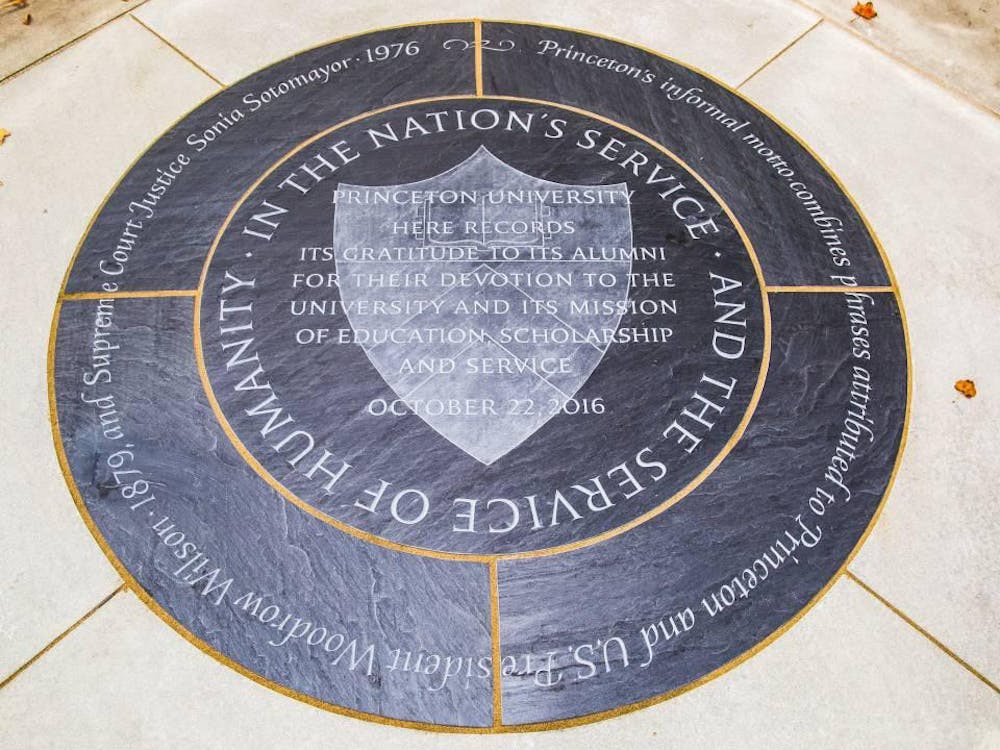Since women first enrolled as full-time undergraduates at the University in 1969, female students have made tremendous contributions to our community. As women continually strive to improve their standing on campus, the Board finds the Women’s Center deficient in its role in this effort, because we believe the Center is neither as inclusive nor as effective as it could be. The Board urges the Women’s Center to refocus its programming to emphasize core issues directly affecting the undergraduate experience that are more inclusive of a politically diverse female student body, as well as of all genders. We further propose the Women’s Center solicit greater input from students in order to facilitate more representative programming.
The Women’s Center must have clearer, more appropriate priorities that better correlate with the student experience. The third full week of classes alone featured extensive Women’s Center programming on sex: “Developing a Self-Pleasure Practice” (Oct. 5), three separate sessions titled “Sex with the Lights On” (Oct. 4-6), and “Yoga for Better Sex” (Oct. 6). These events were advertised with posters that included questions like “Where is the male g-spot?” and “Anal is his favorite thing – what’s yours?” While the Board supports the Women’s Center’s freedom of expression, such crass publicity crosses beyond provocativeness in a manner that may be off-putting to many students, of all genders, and deter them from participation in Center activities.
Furthermore, by over-emphasizing issues related to sexuality at the expense of other valuable programming, the Women’s Center could harmfully reduce Princeton women to their bodies. There may be a place for such events on campus, but with limited time and resources, the Women’s Center ought to prioritize high impact events that encompass the full range of interests Princeton women have, such as pursuing leadership opportunities or seeking career advice. It is surely a case of misplaced priorities that it is not until tomorrow, Oct. 18, in the fifth full week of classes, that the Women’s Center is hosting an event called “Elect Her” (with the last election-related event, “Let’s Elect Her,” happening nearly two years ago on Dec. 15, 2014). It won't be until Nov. 10 that the Center is hosting an event called “How to Identify and Respond to Sexism in the Workplace.” In addition, when promoting these events, we believe the Women’s Center should make a particular effort to reach out to, and be more welcoming of, male students, a critical improvement as men are invaluable partners in promoting gender equality.
In addition to being generally unappealing to many students from a variety of backgrounds, the Women’s Center’s programming is particularly unrepresentative of the political diversity among Princeton women. The Women’s Center hasa long history of hosting politically charged and overwhelmingly liberal events, including “Truth and Power: #BlackLivesMatter Documentary Screening” (Mar. 24, 2016), “Battling Abortion Stigma: A Student Speaks Out About Her Story” (May 8, 2015), and “#BlackLivesMatter with Co-Founder Alicia Garza” (Feb. 23, 2015). The Board here takes no stance on these issues themselves and believes such events are important to host at Princeton, but not by an organization intended to be inclusive of all Princeton women, irrespective of political viewpoint. The Women’s Center cannot support all female students when its programming is so politically homogeneous that women who hold different opinions on contentious issues, like abortion or police relations, may opt out of involvement with the Center altogether. Politically diverse programming is essential to be inclusive of all female students and in the spirit of Princeton’s intellectually open environment.
The issues the Board has identified above could be remedied in part by the Women’s Center seeking and incorporating more input from students. While the Center has student workers and hosts focus groups for feedback, these opportunities are not well-advertised and information about them does not appear on the Women’s Center website. By contrast, the Carl A. Fields Center has a prominent Fellows program for “student leaders [to] contribute to the mission, vision and pillars of the Center.” The Women’s Center should mimic this high visibility model by having information about applying to be a student worker on its website and should include an easily accessible feedback form online. As well, the Center should ensure its student staffers represent a culturally and politically diverse group of Princetonians. Another wider-reaching initiative would be to disseminate a survey for student insight and ideas that would capture input from across campus.
To effectively achieve its goals, the Women’s Center must operate in a politically diverse and inclusive manner. Conversations about political issues of particular importance to women are beneficial to Princeton, but not when organized in a manner that highlights only one viewpoint by a program that ostensibly seeks to support Princeton women across the political spectrum. A Women’s Center that welcomes undergraduates of all political backgrounds and gendersand prioritizes programming on important issues beyond sexat the beginning of the year will best be able to support female Princetonians, and the Board strongly encourages the Women’s Center to implement our recommendations accordingly.
TheEditorial Boardis an independent body and decides its opinions separately from the regular staff and editors of The Daily Princetonian. The Board answers only to its Chair, the Opinion Editor, and the Editor-in-Chief.







